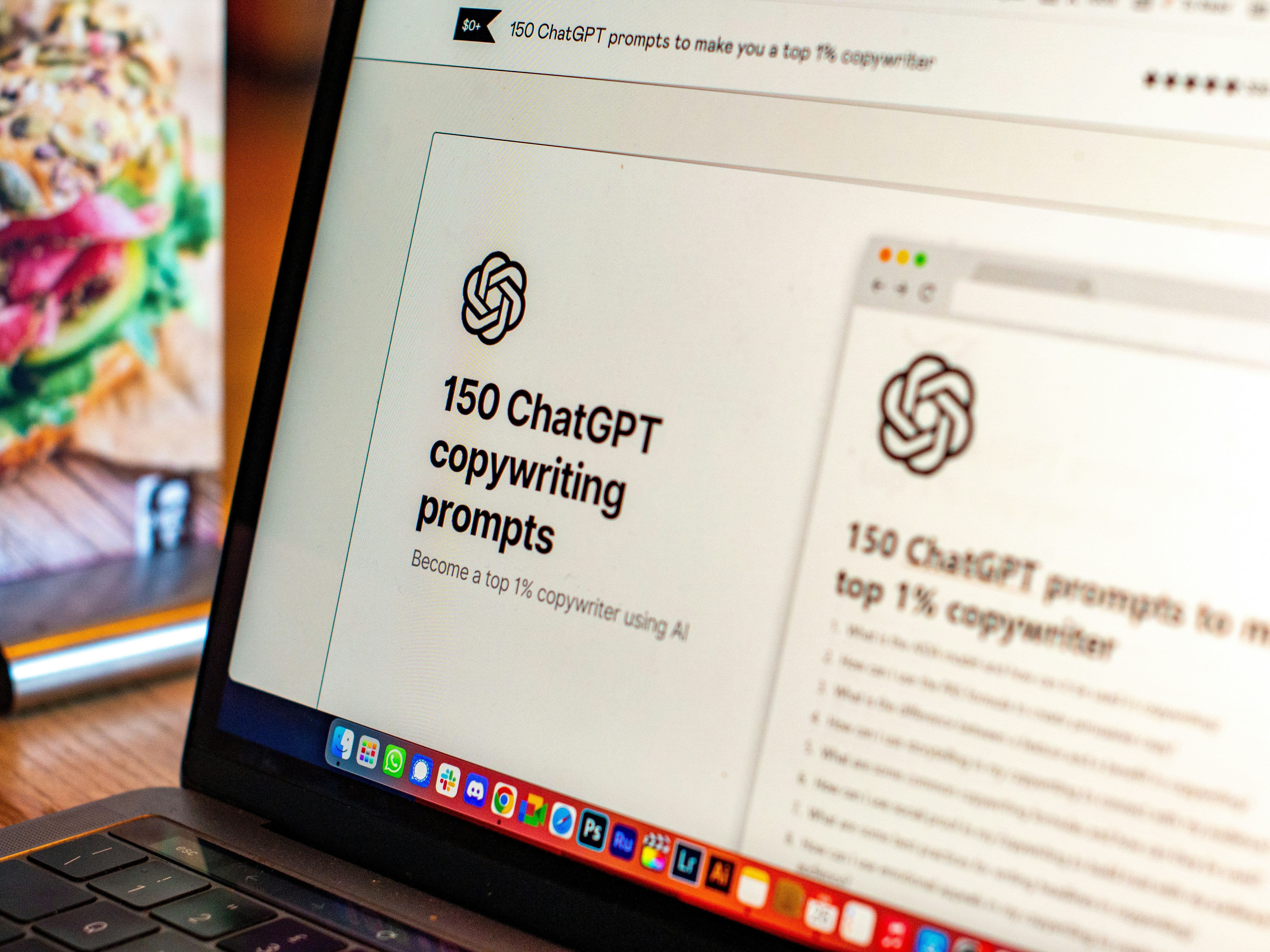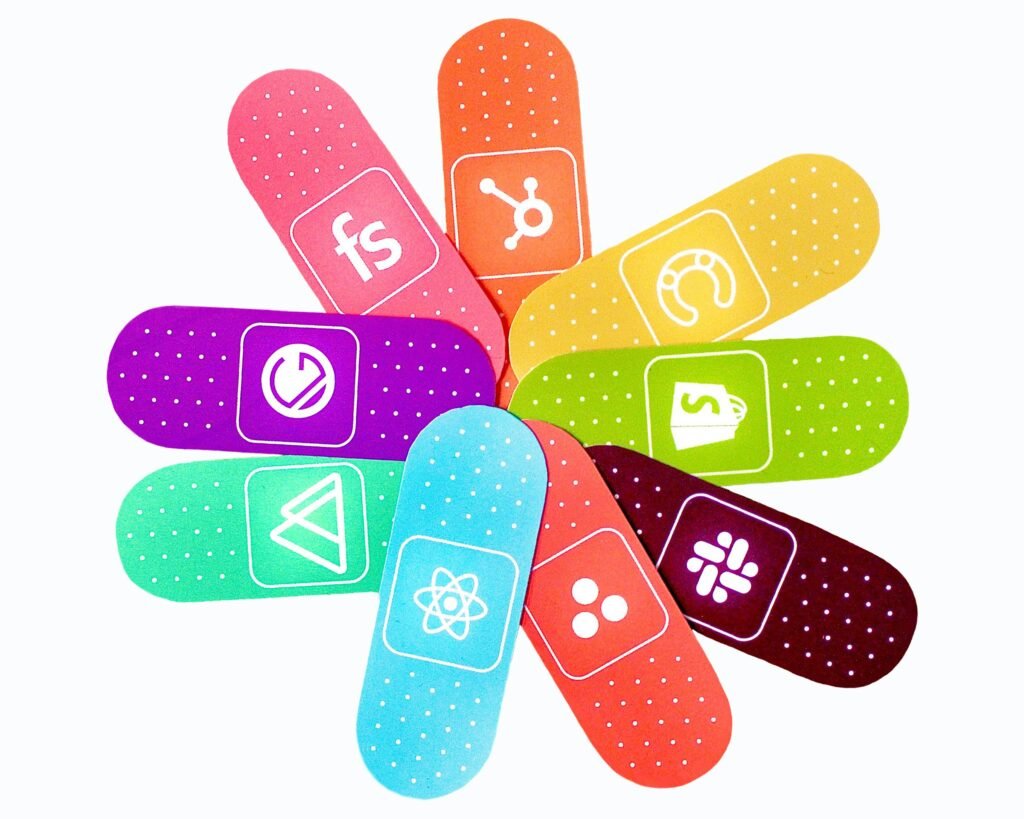
Introduction to AI in Content Creation
In recent years, the advent of artificial intelligence (AI) has significantly transformed various industries, including content creation. AI-powered content creation refers to the utilization of sophisticated algorithms and machine learning techniques to generate high-quality written material efficiently and effectively. This modern approach has emerged as a vital tool in the realm of content marketing, aiding professionals and individuals alike in producing relevant and engaging material tailored to their target audiences.
One of the critical contributions of AI in content creation is its ability to automate repetitive tasks. Traditional content creation can be labor-intensive and time-consuming, often requiring substantial human effort to conduct research, draft articles, and edit content. AI tools can streamline these processes by quickly analyzing vast amounts of data, identifying trending topics, and generating drafts or summaries in a fraction of the time it would take a human writer. This automation not only allows content creators to allocate their time more effectively but also enhances productivity across the board.
Moreover, the relevance and engagement of content are paramount in capturing the attention of readers. AI systems analyze user behavior and preferences, enabling the creation of highly personalized material that resonates with the intended audience. By integrating insights derived from analytics, AI-powered tools can help ensure that the content produced is not only relevant but also engaging, thereby driving higher levels of interaction and interest from the target demographic.
In addition to efficiency and engagement, AI plays a critical role in maintaining the quality of the output. Advanced AI writing tools are designed to adhere to the best practices of language, style, and coherence, which helps in delivering polished and professional content consistently. As a result, individuals harnessing AI for their content creation endeavors can achieve a balance between productivity and quality, ultimately leading to more successful content marketing strategies. The growing significance of AI in this field cannot be understated, as it continues to evolve and reshape the landscape of content creation.
The Benefits of AI-Powered Content Creation
AI-powered content creation has emerged as a transformative tool in various sectors, particularly in the domain of health-related content. One of the most significant advantages is cost-efficiency. By automating the content creation process, organizations can reduce expenses associated with hiring professional writers or investing in extensive research. This allows health brands, wellness blogs, and medical institutions to allocate resources more effectively, ultimately contributing to a budget-friendly approach while disseminating crucial health information.
Additionally, utilizing AI in content creation leads to substantial time savings. Traditional content production can be labor-intensive and slow. AI can generate health articles, blogs, and social media posts in a fraction of the time, allowing organizations to respond swiftly to emerging health trends or public inquiries. This promptness not only keeps audiences informed but also enhances engagement, fostering a well-informed community dedicated to healthier living.
Moreover, AI can enhance creativity and innovate content strategies. By analyzing vast amounts of data, AI tools can identify topics that resonate with audiences, thereby generating content that is both relevant and engaging. This improved targeting ensures that health-related content meets the needs of specific demographics, effectively promoting a healthier lifestyle. Additionally, AI systems continuously learn and adapt, which aids in producing even more tailored content over time, further amplifying relevance and interest.
Precision in targeting is another noteworthy benefit. AI algorithms can analyze user behavior and preferences, enabling precise content customization. This means that audiences receive health information that directly caters to their needs and interests, leading to better health outcomes. The intersection of AI capabilities with the emphasis on accessibility in health content usher in a new era where information is not only abundant but also pertinent and easy to digest, aligning perfectly with budget-conscious goals.

How AI Improves Content Quality and Relevance
In the ever-evolving landscape of digital content, the integration of artificial intelligence (AI) tools has significantly transformed the way we create and curate material. By leveraging data analytics and machine learning, AI technologies enhance content quality and relevance, ensuring that what is produced resonates with the target audience. One of the primary advantages of using AI is its ability to analyze vast amounts of data quickly, identifying emerging trends and popular topics within the health and wellness sector.
AI algorithms are designed to sift through online conversations, social media interactions, and search inquiries, providing creators with actionable insights into what subjects are capturing audience interest. For instance, by continuously monitoring content performance and user engagement metrics, AI tools can suggest adjustments to existing content strategies. This dynamic approach allows writers to stay ahead of the curve, producing timely articles that can meet the evolving needs of health-conscious readers.
Moreover, AI aids in optimizing content formats, tailoring the presentation style to align with audience preferences. Whether it’s identifying the most engaging video lengths, ideal blog post structures, or recommended infographics, AI’s data-driven recommendations help ensure the content is not just informative but also captivating. As a result, creators can streamline their efforts, reducing valuable time while simultaneously enhancing the quality of their output.
Furthermore, by analyzing reader feedback and behavioral patterns, AI tools can facilitate a more personalized experience, suggesting topics that align with individual preferences. This personalization fosters a connection between the content produced and the specific interests of the audience, ultimately driving engagement and satisfaction. The enhanced relevance brought forth by AI in content creation can significantly contribute to a healthier lifestyle and budget-friendly choices, catering directly to readers’ needs and preferences.
AI Tools for Creating Health-Related Content
In the rapidly evolving digital landscape, the utilization of artificial intelligence (AI) in content creation has gained significant traction, particularly within the health sector. A range of AI tools has been developed to assist writers, researchers, and health professionals in generating accurate and engaging health-related content while ensuring adherence to the highest standards of credibility and authority.
One prominent AI tool is HealthifyMe, which leverages machine learning algorithms to curate personalized meal plans and fitness regimens based on user data. It provides users with vital statistics and health recommendations, allowing content creators to draw insights for writing informative articles on nutrition and exercise. Additionally, the platform’s data analytics can facilitate the generation of user-centric health content that resonates with target audiences.
Another noteworthy example is the IBM Watson Health platform, renowned for its advanced data-processing capabilities. IBM Watson Health utilizes AI to analyze vast amounts of medical literature and patient data, thereby providing evidence-based insights that can enhance the accuracy of health-related writing. Content creators can rely on this tool to source reliable statistics, case studies, and relevant medical guidelines, lending authority to their publications.
Quillbot is an AI writing assistant that aids in rephrasing text while maintaining context. While not limited to health content alone, its utility in simplifying complex medical terminology makes it an excellent resource for writers seeking to craft accessible health narratives. The tool enables writers to present intricate health information in a way that is easily digestible for a broad audience, ensuring that readers can effectively understand essential concepts.
In addition to these tools, platforms like Copy.ai and Writesonic can help in generating health-focused blog posts, brochure content, and social media updates. These applications use AI to come up with suggestions and structure ideas, which can be particularly useful when seeking to engage audiences on diverse health topics.

AI and Affiliate Marketing: A Match Made in Heaven
The integration of artificial intelligence (AI) into affiliate marketing has revolutionized how marketers approach content creation and optimization. By leveraging AI tools, marketers can enhance the quality and efficiency of their health-related content, ensuring it resonates well with their target audience. AI enables the analysis of extensive datasets, which allows marketers to understand consumer behavior patterns and preferences. This insight is invaluable in crafting tailored content that speaks directly to the users’ needs, making affiliate marketing efforts significantly more effective.
Furthermore, AI-driven tools can automate various aspects of content creation, leading to substantial time and cost savings. For instance, AI algorithms can generate product descriptions, blog posts, and social media updates in a fraction of the time it would take a human writer. However, it is essential to note that while AI enhances efficiency, maintaining authenticity in health-related content remains a priority. Marketers must ensure that AI-generated content adheres to ethical standards and accurately conveys reliable information. This balance between automation and authenticity is crucial in the health sector, where misinformation can have serious consequences.
The collaborative capabilities of AI tools extend beyond mere content generation. They can also assist in search engine optimization (SEO) efforts, improving the visibility of affiliate marketing content. By analyzing and identifying trending keywords and topics, AI can help marketers create content that not only ranks well but also engages audiences effectively. This data-driven approach ensures that the affiliate products promoted are relevant and timely, ultimately driving conversions.
In essence, the fusion of AI and affiliate marketing creates robust opportunities for marketers to develop content that is both informative and highly optimized. As the landscape of content creation continues to evolve with these technologies, we can anticipate even greater interdisciplinary benefits across various sectors, particularly in fields that prioritize health and wellbeing.

Implementing AI-Powered Health Products Promotion
Promoting AI-powered health products requires a multifaceted strategy that incorporates innovative content creation methods. Healthcare professionals and marketers can utilize artificial intelligence to develop impactful promotional campaigns that effectively resonate with their audiences. One of the first steps is to understand the target demographic’s preferences, pain points, and needs. Using AI analytics, marketers can gather insights and identify trends that allow them to tailor content specific to the audience’s interests.
Healthcare professionals should also consider employing AI tools that assist in content generation and optimization. For instance, natural language processing (NLP) algorithms can analyze existing healthcare content and offer suggestions for improvement based on trending keywords and topics. Incorporating these insights into promotional materials allows for enhanced visibility in search engine results, making it easier for potential customers to discover AI health products.
Additionally, integrating engaging multimedia elements such as videos, infographics, and interactive quizzes within promotional content can significantly increase audience engagement. AI technologies can help in crafting personalized experiences, ensuring users receive content that aligns with their individual health concerns or preferences. For example, a health app could suggest tailored articles or promotional offers based on user activity and preferences. This personalized approach not only enhances user experience but also builds trust and loyalty towards the brand.
Moreover, leveraging social media platforms for the promotion of AI-based health products further extends reach. AI tools can analyze engagement metrics and suggest optimal posting times, formats, and channels based on audience behavior. By fostering a data-driven content strategy, healthcare marketers can successfully establish a strong online presence, drive engagement, and present their offerings effectively. Thus, the integration of AI-powered content strategies into the promotion of health products can lead to a more successful marketing campaign, ultimately benefiting both the provider and the consumer.
Creating an AI-Promotion Strategy for Health Content
Crafting an effective AI-promotion strategy for health-related content involves several key considerations. One of the first steps is to identify the target audience. Understanding the demographic characteristics, preferences, and health-related interests of the audience is crucial for creating relevant and engaging content. Utilize AI tools to analyze data from previous engagements, helping to hone in on specific segments within your audience that may benefit most from the health content. For instance, if your analytics suggest that younger individuals are more engaged with fitness tips, tailor your content toward that group.
Once the audience is defined, the next step is to construct a comprehensive content schedule. Maintaining a consistent posting schedule is vital for keeping your audience engaged. Incorporating AI tools can aid in automating the scheduling process, thereby optimizing when to publish health-related articles for maximum exposure. These tools can analyze engagement patterns, suggesting the most effective times to reach your audience across various platforms. Furthermore, integrating varied content types—such as blogs, infographics, and videos—can enhance visibility and appeal to different audience preferences.
Additionally, evaluating the effectiveness of your campaign is essential for ongoing improvement. Utilize AI-driven analytics to conduct a thorough analysis of the performance of your health content. Metrics such as engagement rates, click-through rates, and conversion rates should be regularly monitored to assess what resonates with your audience. By adopting an iterative approach, where strategies are adjusted based on data insights, you can continually refine your promotion tactics. Incorporating feedback and trends will ultimately contribute to a more effective AI-promotion strategy, ensuring that your health content not only reaches the audience but also fulfills their needs for informative and actionable insights.

Balancing Technology with Personal Touch in Health Content
The integration of artificial intelligence into content creation has revolutionized various sectors, including health and wellness. However, it is crucial to remember that while AI can assist in generating informative and well-researched health content, it cannot replace the unique human touch that comes from personal experience and emotions. Health-related content must resonate with audiences on a personal level to be truly effective, making the combination of AI insights and individual perspectives imperative.
When crafting health content, leveraging AI tools for data analytics and trend forecasting can enhance the overall quality and relevance. These insights can provide valuable information about common health issues, emerging wellness trends, and the needs of specific demographics. However, it is essential for creators to embed their unique voices and perspectives into this data-driven framework. The individuality of a writer’s narrative is what often engages readers and fosters genuine connections. Personal anecdotes, lived experiences, and emotional threads can illuminate crucial health topics in ways that AI-generated content simply cannot replicate.
Moreover, a blend of technology and personal touch allows for the creation of a more holistic approach to health communication. Writers should aim to balance the accuracy provided by AI with the authenticity derived from personal interaction and emotional intelligence. Crafting content that reflects both analytical rigor and individual insight facilitates a multi-dimensional understanding of health, thus leading to better reader engagement. This human element can transform informative pieces into relatable stories, which resonate on a deeper emotional level, ultimately fostering a more engaged and appreciative audience.
In conclusion, although AI can significantly enhance the efficiency and effectiveness of health content creation, the integration of a personal touch remains vital. By blending AI insights with their unique narratives, content creators can produce health resources that are both informative and genuinely connect with their audiences.
Conclusion and Future of AI in Health Content Creation
In summarizing the transformative impact of artificial intelligence on content creation, particularly within the health sector, it is evident that AI is revolutionizing the way individuals access, interpret, and utilize health-related information. The ability of AI-driven tools to analyze vast datasets, generate tailored content, and streamline the information dissemination process not only enhances the quality of health content but also makes it more accessible and relatable for diverse audiences.
As the demand for personalized health information grows, these technologies are poised to further refine their capabilities. Future developments in AI technologies, including more sophisticated algorithms and machine learning models, are expected to interact with users in an increasingly nuanced manner. This progression emphasizes a future where health content is not only more efficient but also imbued with a human-like understanding that enhances user engagement. Such advancements might lead to improved health literacy, enabling individuals to make informed choices that promote their well-being while staying within budgetary constraints.
Readers are encouraged to actively engage with these AI-powered tools, exploring platforms that utilize advancements in this field to generate personalized health content. By integrating these resources into their daily routines, individuals can cultivate healthier lifestyles that are aligned with their financial needs. The integration of AI in health content creation is just the beginning. As these technologies continue to evolve, the potential for even greater innovation exists, and it will be critical for users to remain informed about how these changes can assist them in leading healthier, more cost-effective lives.
